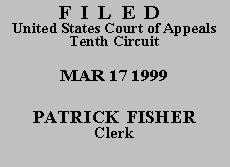

| UNITED STATES OF AMERICA,
Plaintiff-Appellee, v.
ROBERT EARLE MARKS,
Defendant-Appellant.
|
|
Defendant Robert Marks appeals revocation of his supervised release and the term of imprisonment imposed by the district court. Defendant's counsel has determined the appeal to be frivolous and has filed an Anders brief (Anders v. California, 386 U.S. 738, 744 (1967)), raising the following issue on behalf of defendant: In addressing defendant during the revocation hearing and sentencing, the district court "used a tone, manner or language that exhibited a bias against [defendant] that denied him due process." Appellant's br. at 4.
We have examined the record on appeal and agree with counsel that the appeal is frivolous. Defendant admitted the violations of the terms of his supervised release. During the revocation hearing, defendant's counsel asked the district court to sentence defendant at the low end of the guideline range. The court rejected the request, concluding defendant had failed to take advantage of previous "breaks" by the court and the probation office and that defendant represented a danger to his children and to the community. The court sentenced defendant at the high end of the guideline range. We find nothing improper in the court's remarks or any bias on the part of the court. See Liteky v. United States, 510 U.S. 540, 555 (1994) ("opinions formed by the judge on the basis of facts introduced or events occurring in the course of the current proceedings, or of prior proceedings, do not constitute a basis for a bias or partiality motion"); United States v. Lowe, 106 F.3d 1498, 1504 (10th Cir. 1997) (no bias where judge based sentence on reliable, undisputed information in presentence report); United States v. Gigax, 605 F.2d 507, 514 (10th Cir. 1979) (judge's expression of opinions at sentencing did not demonstrate bias).
The judgment of the district court is AFFIRMED. Counsel's motion to withdraw is GRANTED. The mandate shall issue forthwith.
Entered for the Court
Mary Beck Briscoe
Circuit Judge
*. This order and judgment is not binding precedent, except under the doctrines of law of the case, res judicata, and collateral estoppel. The court generally disfavors the citation of orders and judgments; nevertheless, an order and judgment may be cited under the terms and conditions of 10th Cir. R. 36.3.